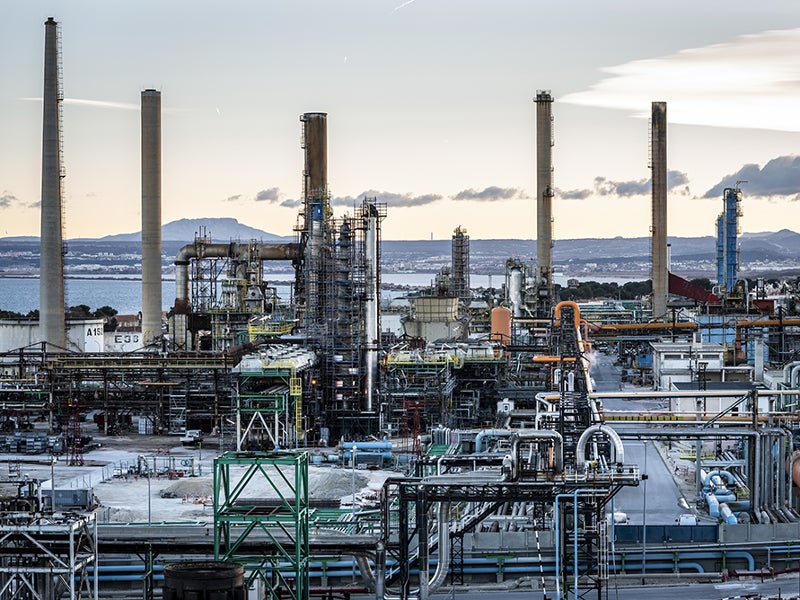Total’s La Mede biorefinery located near the Port of La Mede, Marseille, Châteauneuf-les-Martigues, is the first of its kind biofuel processing facility in France and one of Europe’s biggest bio-refineries.
Brought on stream in July 2019, the 500,000 tonnes per annum (tpa) biorefinery facility was developed through the conversion of the pre-existing La Mede crude oil refinery, one of the oldest oil refineries in France.
Total initiated the conversion project in 2015 as part of France’s commitment to increase the share of biofuels in its energy portfolio to 15% by 2030.
The La Mede biorefinery project involved an estimated investment of €275m and created more than 800 employment opportunities during the conversion phase, apart from creating 250 direct jobs.
La Mede biorefinery project background
The La Mede refinery complex had been operational since 1935. It was developed with a crude oil processing plant as well as a petrochemical unit.
In April 2015, Total decided to transform it into a biorefinery facility, owing to the growing competitiveness in the crude oil processing market and the prospective future for biofuels.
Total stopped crude oil processing at the refinery by the end of 2016 and completed the construction of a logistics and storage hub for the biorefinery facility in April 2017. It also brought into operation an 8MW on-site solar farm by the end of 2017.
The biofuels produced at La Mede will satisfy the European Union (EU) standards and will reduce carbon emissions by more than 50% compared to fossil fuels.
Total, which aspires to be the leading distributor of biofuels in Europe, has invested €448m (€500m) on advanced biofuels research and development (R&D) in the last decade.
La Mede biorefinery details
The La Mede complex comprises a biorefinery unit, a photovoltaic (PV) solar power plant, a fuel additive producing unit, a logistics and storage hub, and an onsite training facility.
The biorefinery will use up to 300,000t of palm oil and at least 50,000t of locally-grown rapeseeds a year, along with sunflower, soybean and carinata, for its feedstock. Vegetable oils will comprise 60-70% of the feedstock, while the remaining will comprise treated waste including animal fats, cooking oil, and residues.
The existing naphtha reformer unit at the site continues to operate for producing the hydrogen required for biorefining.
The onsite PV solar plant provides half of the electrical energy required for the refinery operations.The multimodal logistics and storage hub for the facility is designed to accommodate up to 1.3 million m³ of diesel, gasoline, heating oil, and jet fuel, besides facilitating shipping via the Marseille Fos Port.
The La Mede complex also houses Total’s second European training centre for oil and petrochemicals industries (OLEUM), which aims to train 2,500 people a year.
Refinery products
The La Mede biorefinery will produce 500,000 tonnes (t) of hydrotreated vegetable oil (HVO) biodiesel a year.
The fuel additive producing unit at the complex is capable of producing 50,000m³ of AdBlue a year. AdBlue is a fuel additive that helps in reducing the nitrogen oxide emissions from diesel engines.
The biorefinery is also planned to produce Avgas and jet fuel in future.
Technology providers
The Vegan® HVO technology used by the La Mede biorefinery was developed by IFP Énergies nouvelles and marketed by its subsidiary Axens.
MAN Energy Solutions provided the turbo compression system for the facility.
SunPower, a subsidiary of Total, supplied the PV solar panels and mounting solar trackers for the solar power facility at the La Mede biorefinery complex.





